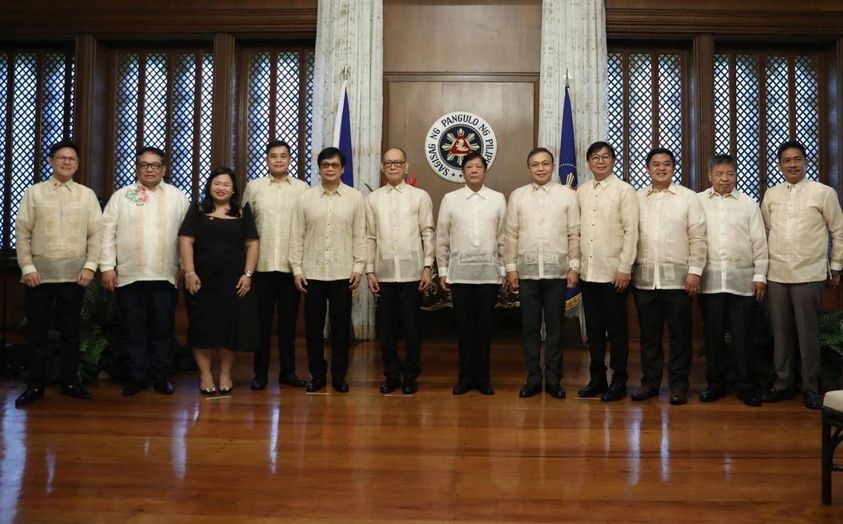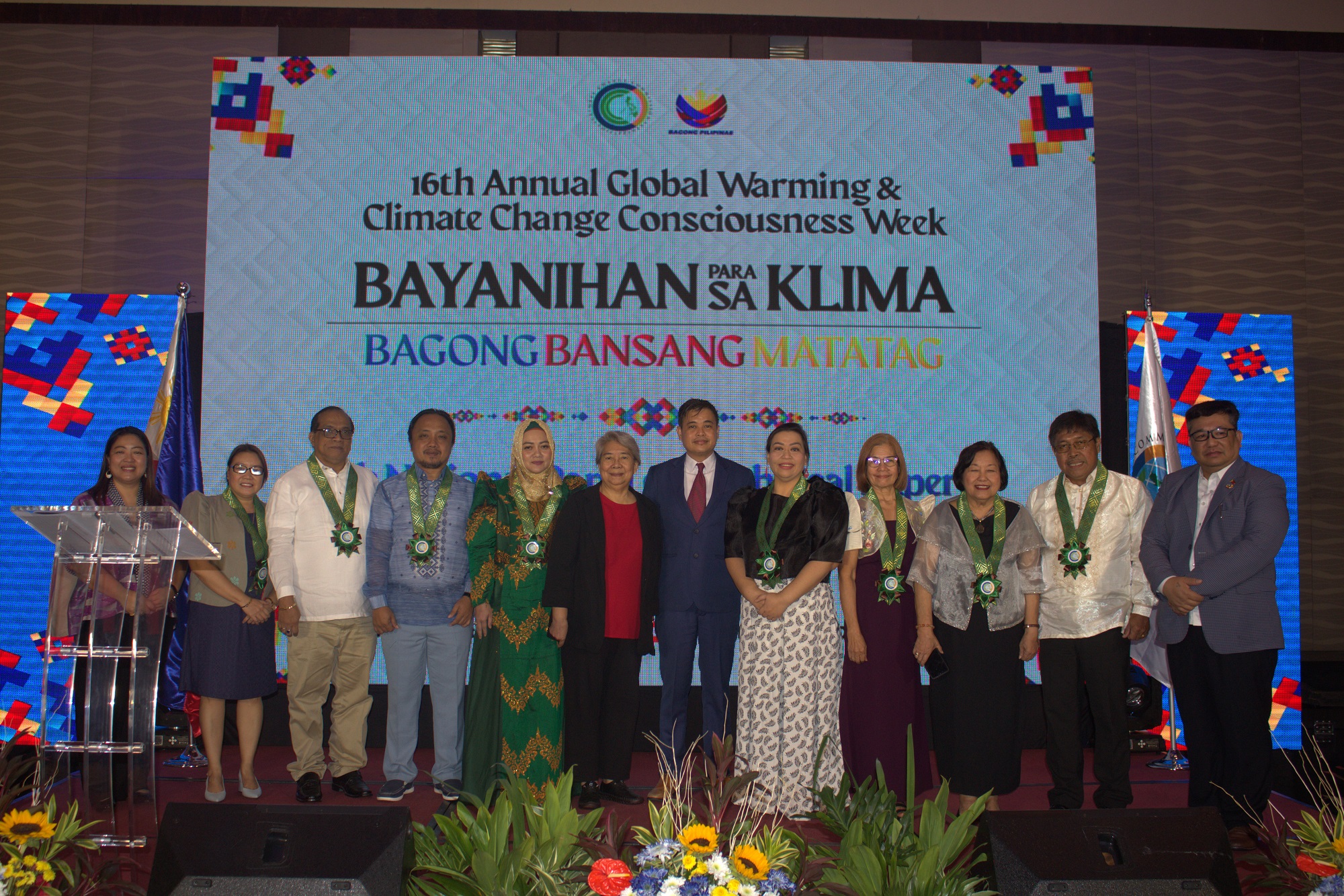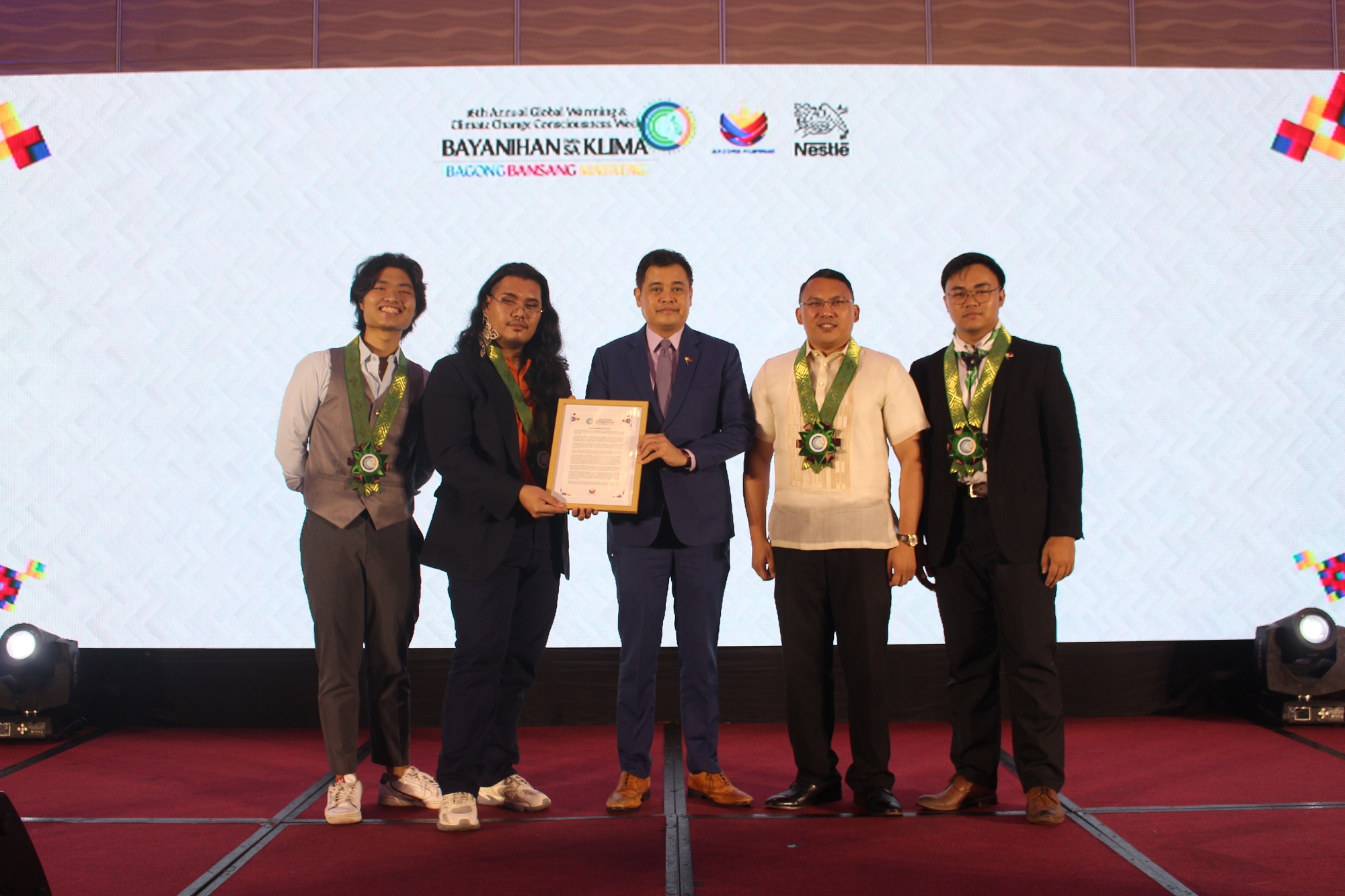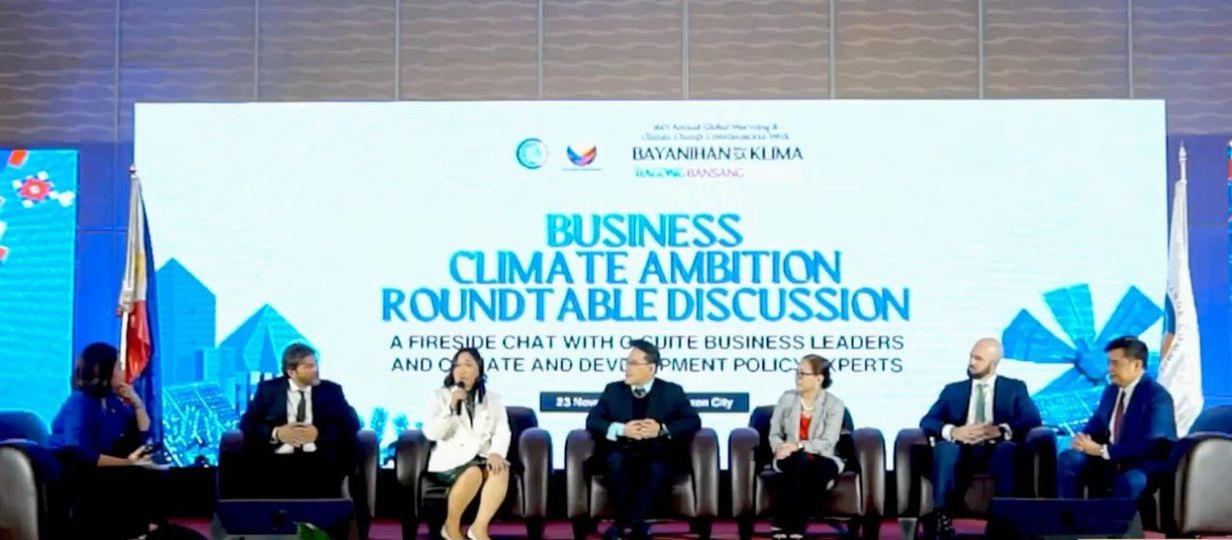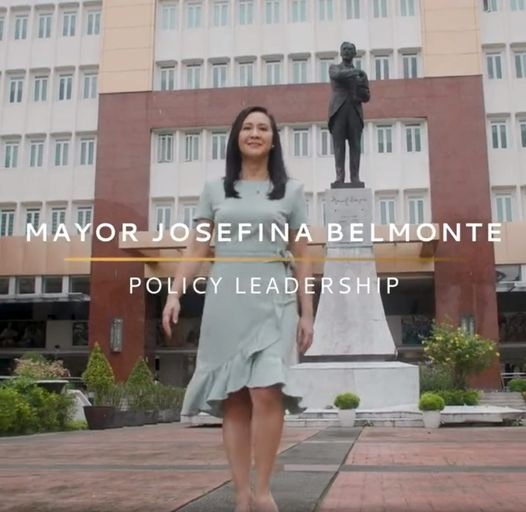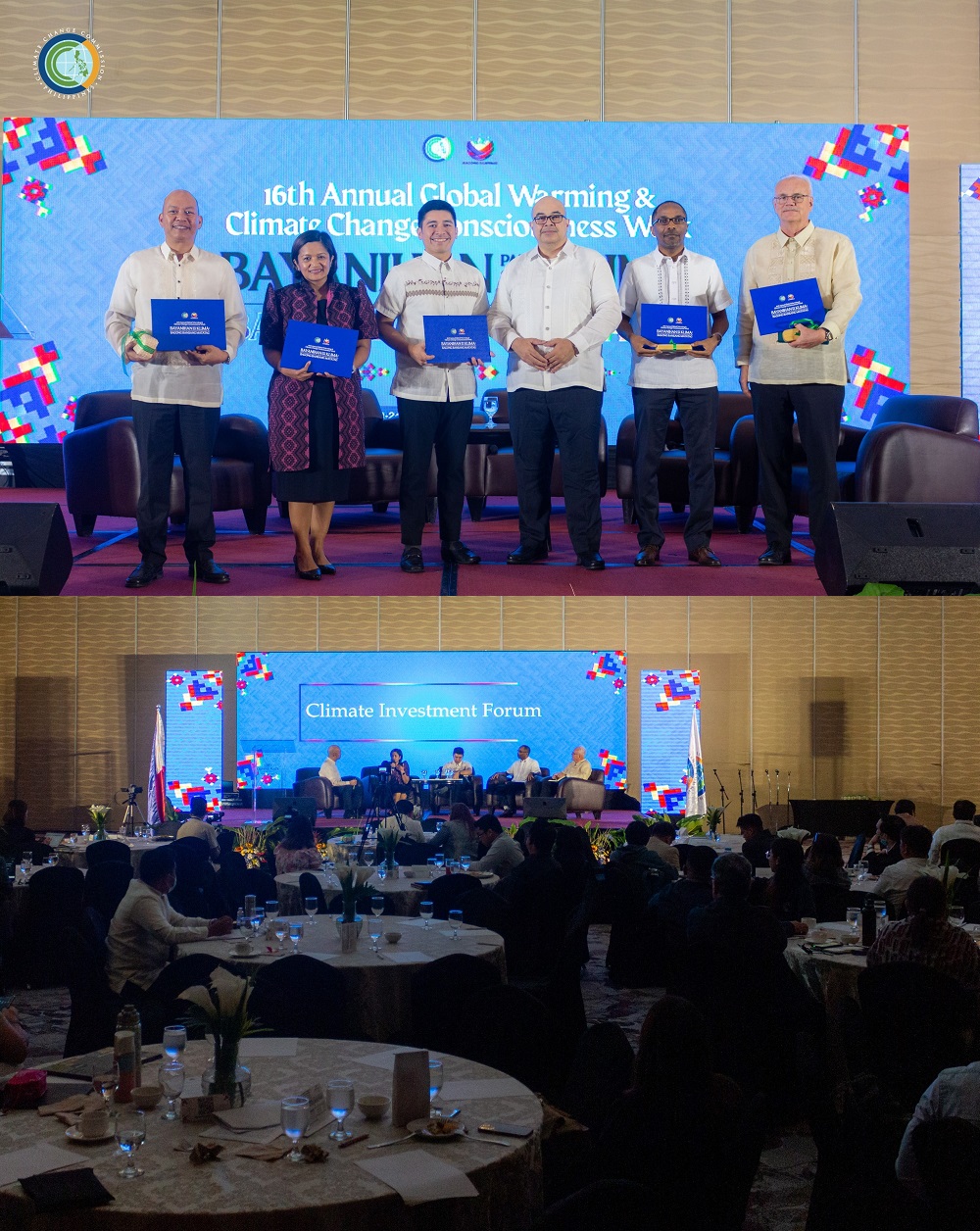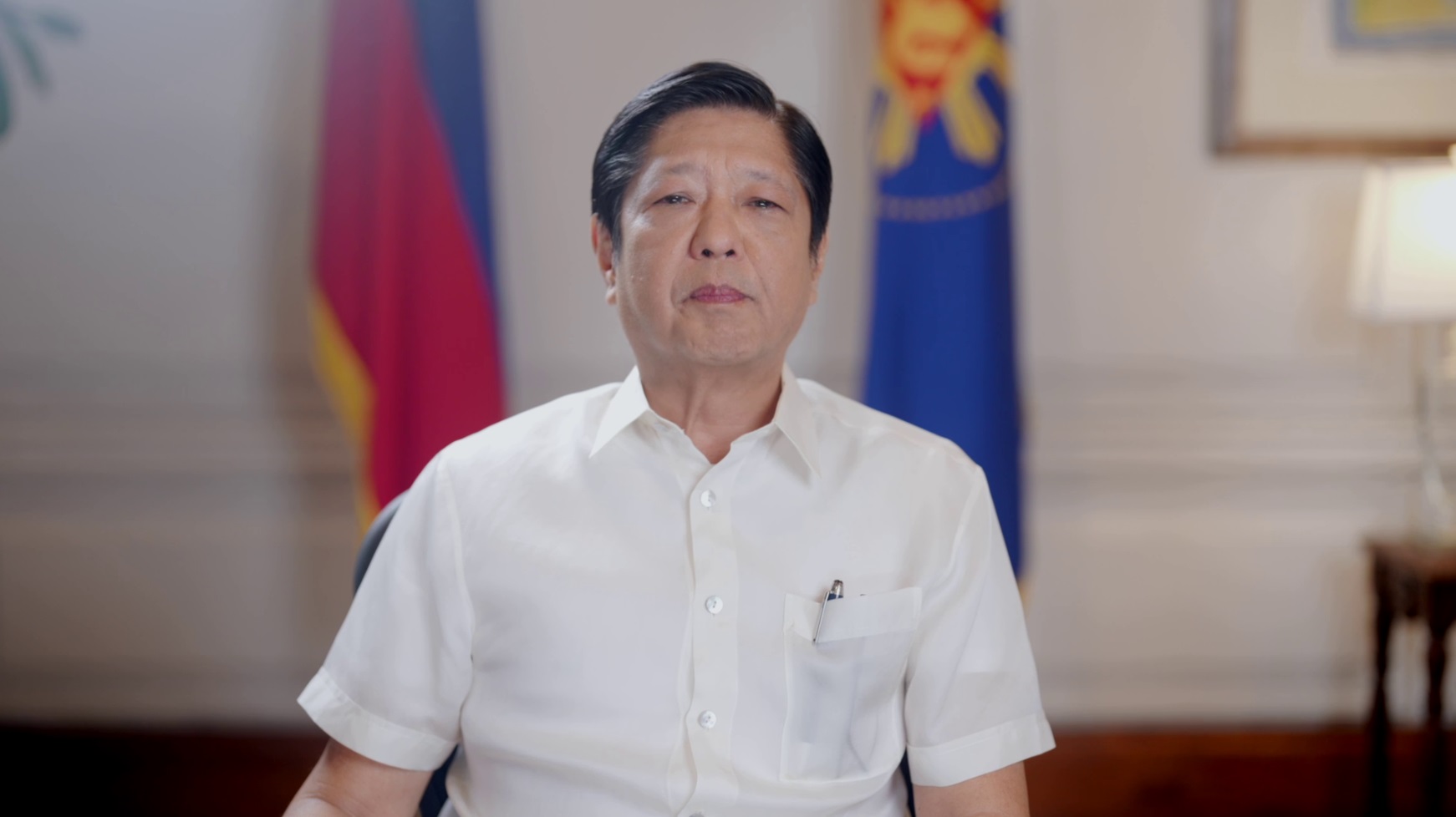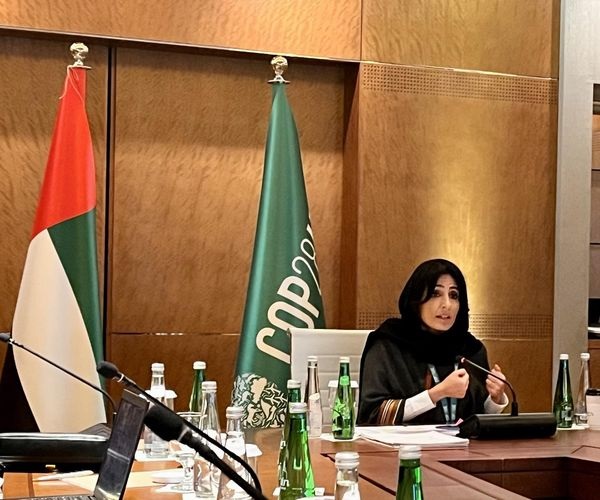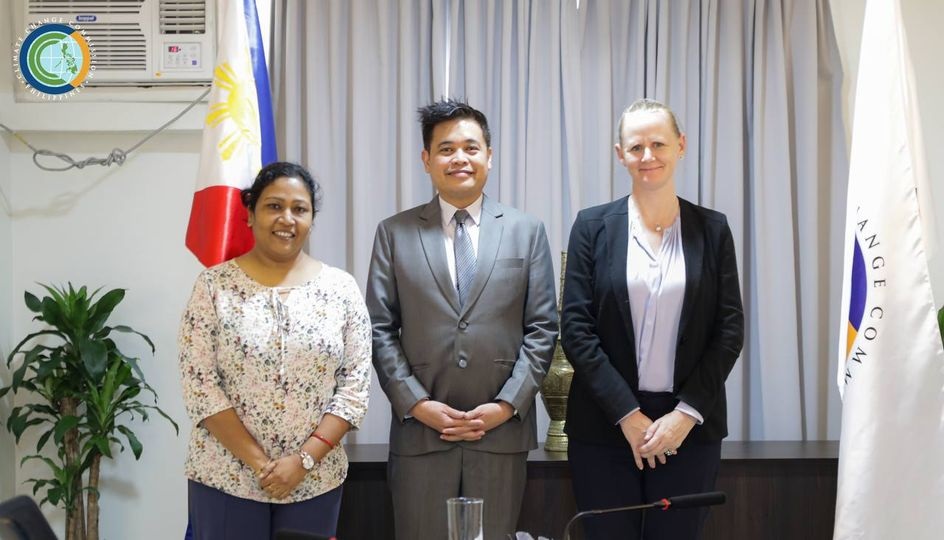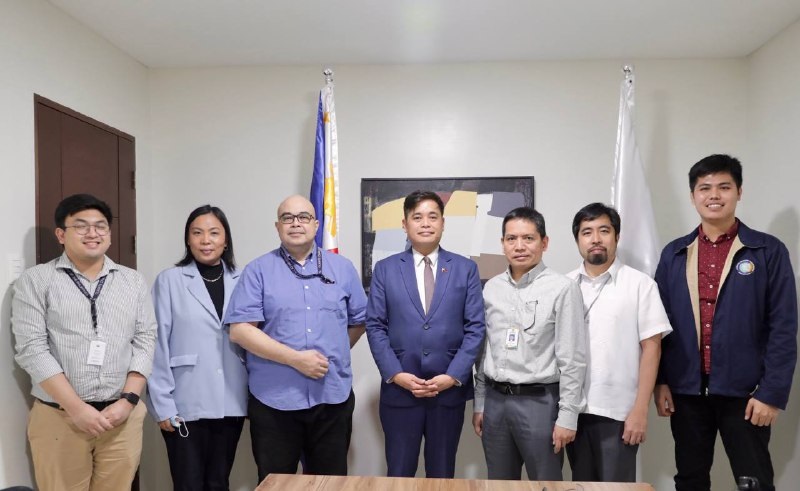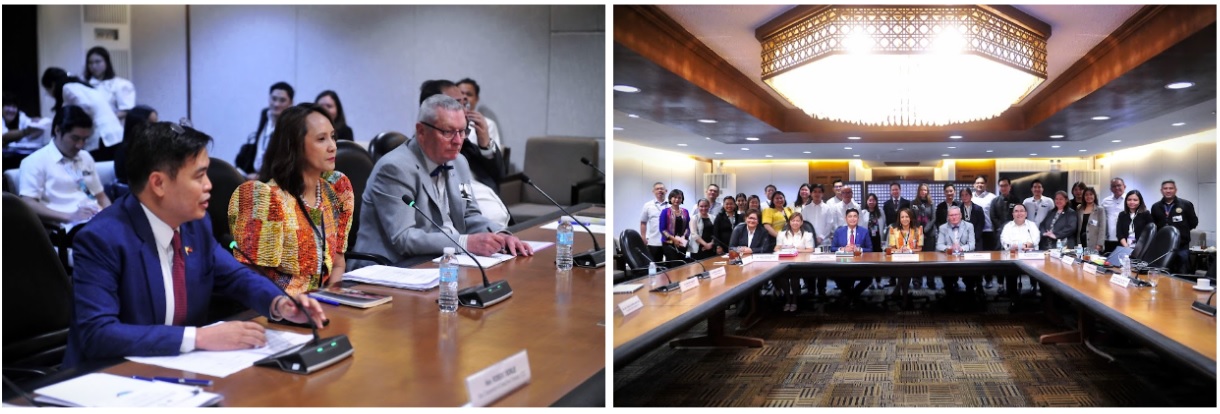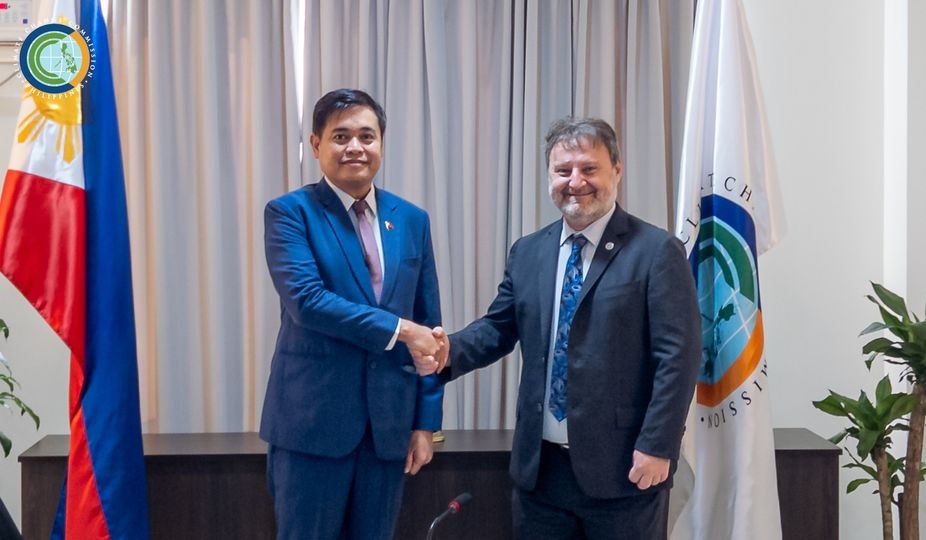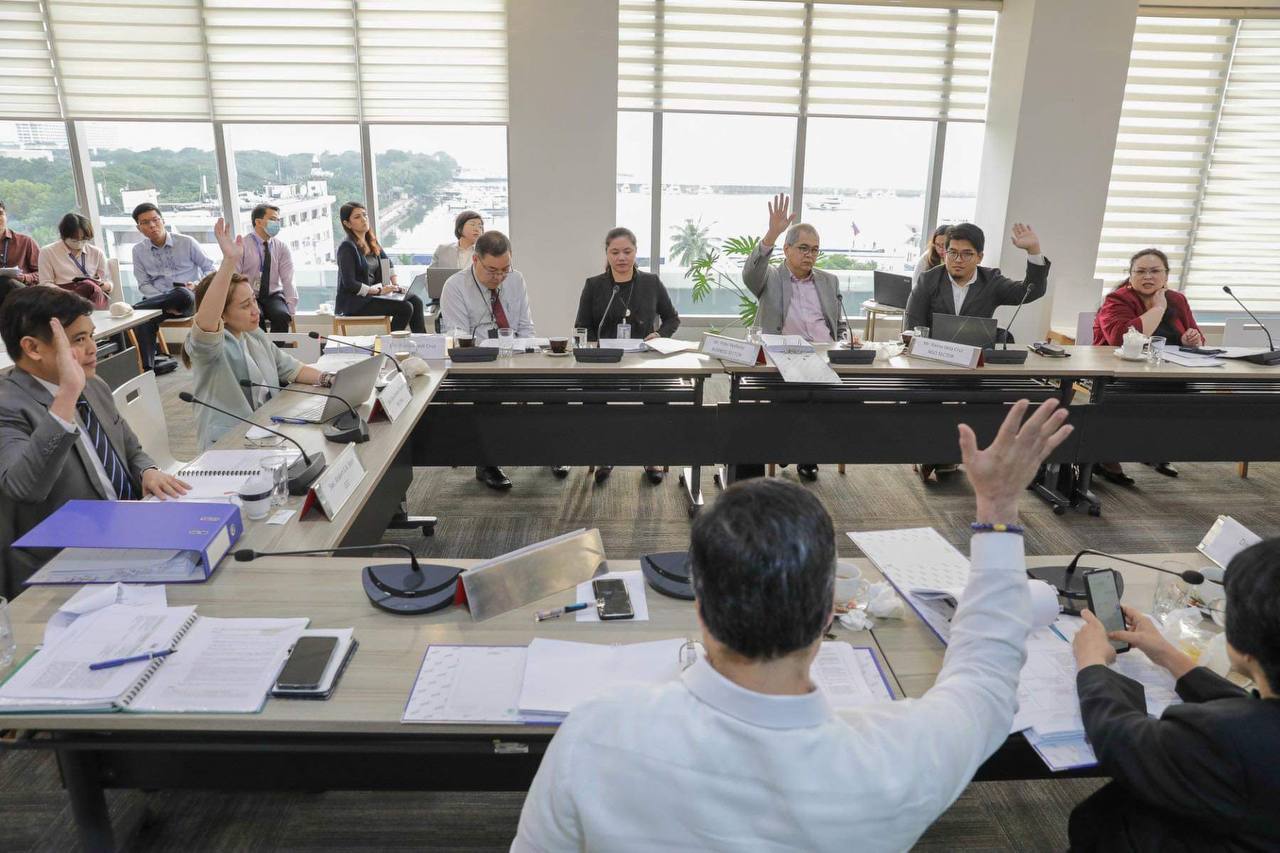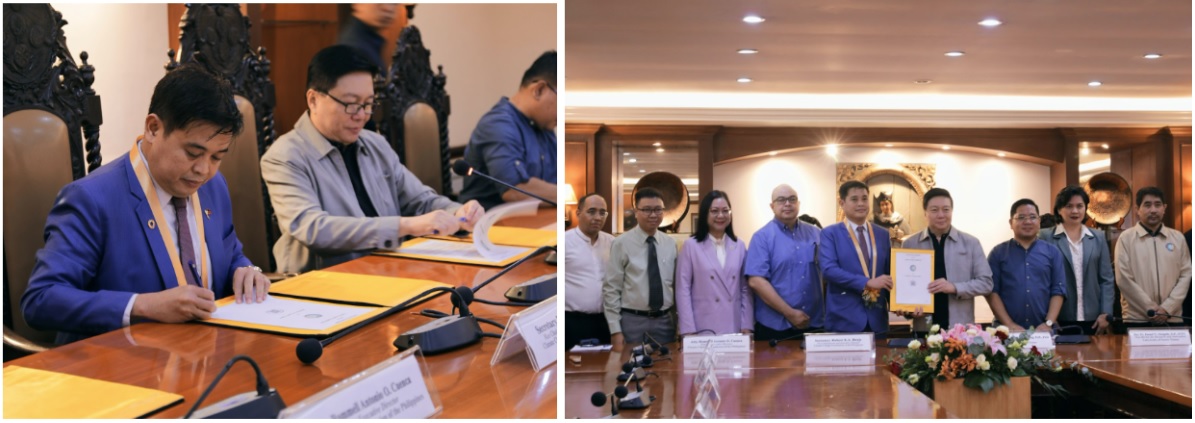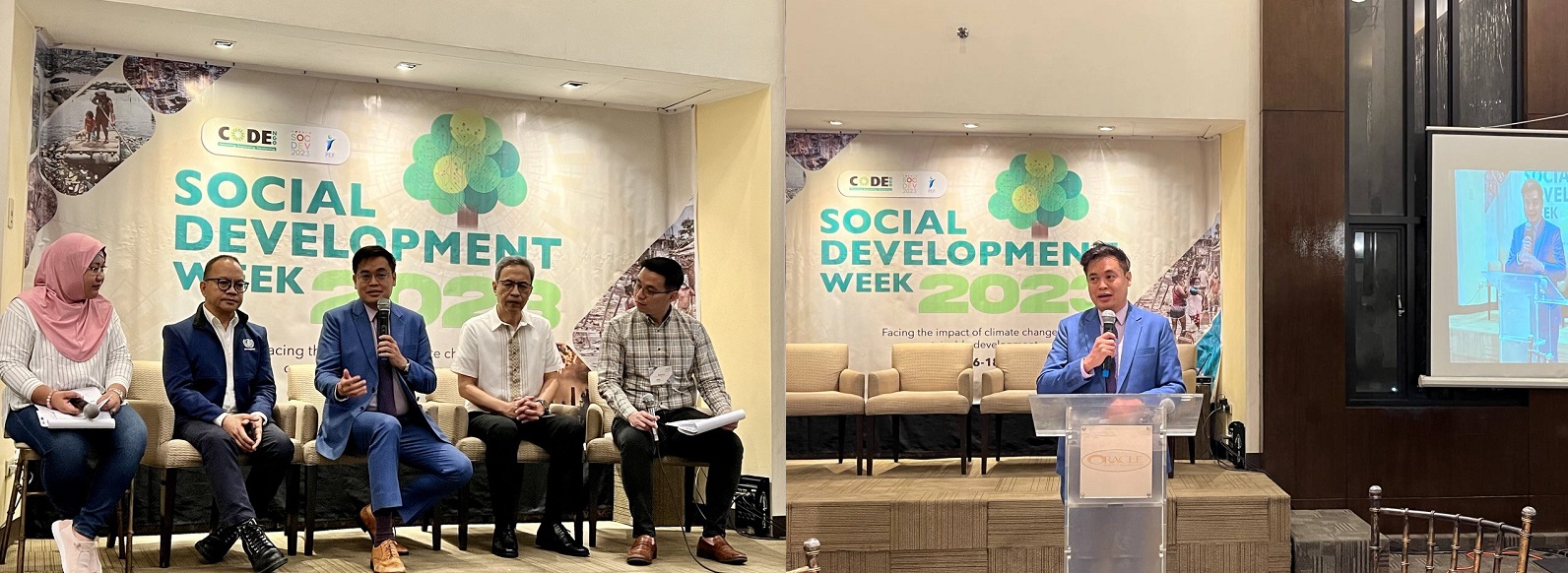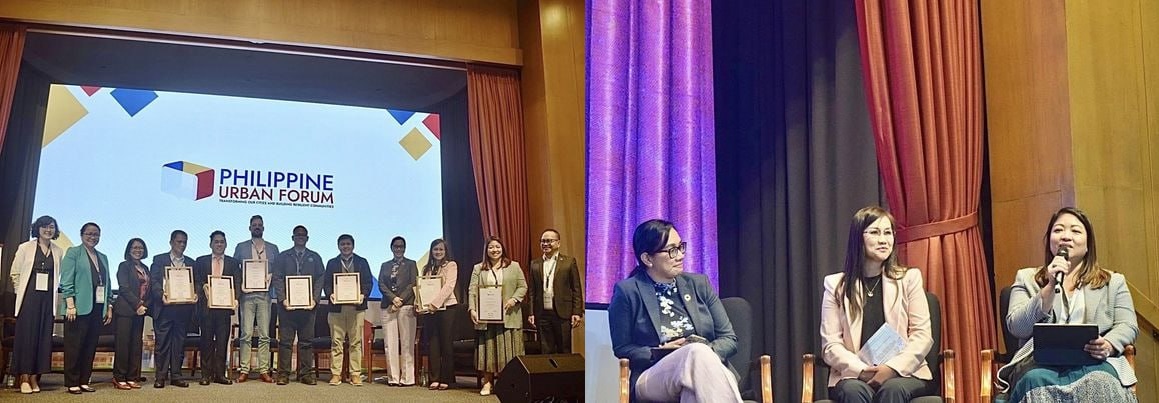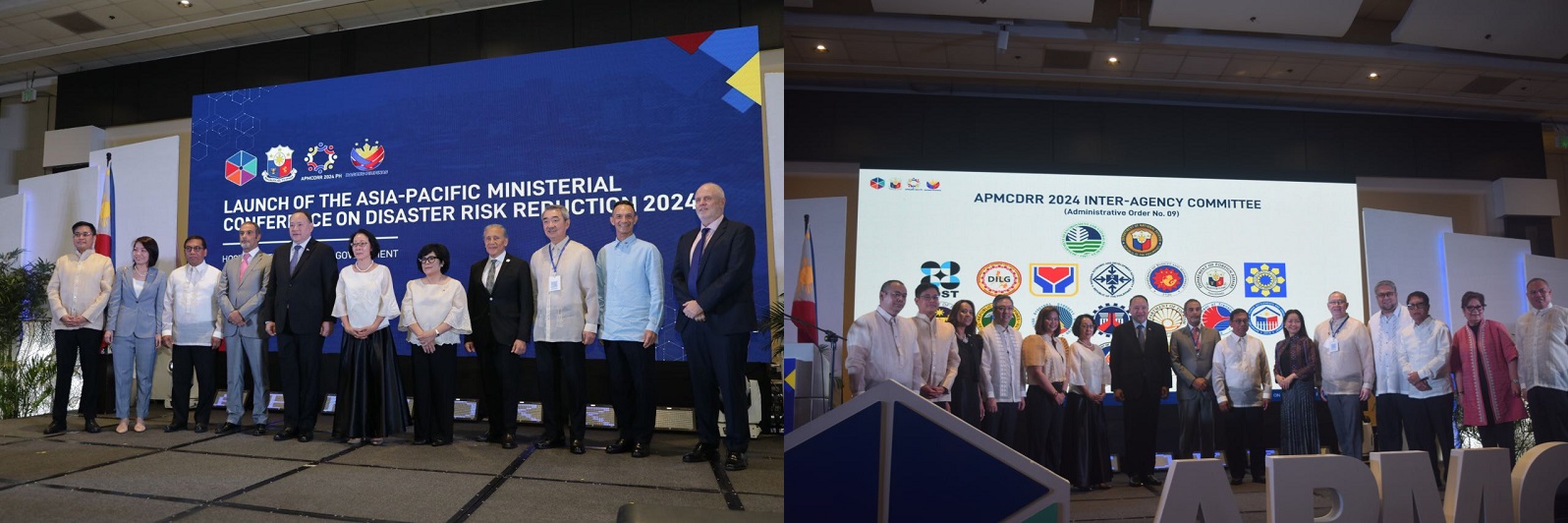QUEZON CITY, 29 November 2023— Chaired by Dr. Doracie Zoleta-Nantes, the National Panel of Technical Experts (NPTE) held a forum during the recently concluded 14th Global Warming and Climate Change Consciousness (CCC) Week. Leading experts and key stakeholders gathered to discuss pressing climate issues affecting the Philippines.
The 12th NPTE Forum examined policy briefs addressing critical concerns such as sea-level rise, flooding, water and human security, climate change impacts on health, and the imperative of integrated coastal management.
Among the crucial issues discussed is the impending water shortages, with projections pointing to a worsening water deficit in various regions such as Cagayan, Pangasinan, Bulacan, Pampanga, Laguna, Bicol, and Cebu by the year 2025.
Dr. Zoleta-Nantes emphasized, "The socio-economic concerns of our nation hinge on maintaining the quality, quantity, and productivity of our water resources.”
There is a pressing concern over the deterioration of water resources, as only 69% of the population enjoys access to safe drinking water, underscoring the urgent attention needed to address the degradation of the country's water resources in terms of both quality and quantity.
Another significant issue discussed is urban vulnerability, emphasizing that low-lying and coastal urban communities face severe consequences from floods and sea-level rise. This highlights the necessity for holistic and effective solutions.
"Complex issues of watershed rehabilitation and water supply management are heavily impacted negatively by climate change that will bring more hardship to the Filipinos," Dr. Doracie Zoleta-Nantes pointed out.
Commissioner Rachel Anne Herrera cited the significant role of the NPTE “in helping us develop the National Adaptation Plan, which provides a macro-level climate risk and impact assessment of historical and future climate scenarios and identifies key priority strategies for moving forward and formulating a roadmap for climate and disaster resilience.”
Secretary Robert E.A. Borje, Vice Chairperson and Executive Director of the Climate Change Commission, underscored the crucial role of science in shaping climate actions: "Science will ensure not only our response to climate change but also enable us to plan and adopt a more strategic approach.
“It is important that we approach climate change not just as our problem but as an intergenerational challenge that we must address. We really need to reach out, starting from the smallest unit, our barangay, to fully understand climate change and what we need to do to meet this challenge,“ he said.
Representative Edgar Chatto, Chairperson of the House Committee on Climate Change, emphasized the significance of the whole nation, whole society approach in policy making processes to ensure inclusivity.
“We need to work together to ensure the establishment of a climate-smart, climate-resilient, and climate-private Filipino community. I enjoin everyone to foster an atmosphere of inclusivity, and harness the power of open dialogue, respect, and collaboration and together, let us make it right for our nation,” he stated.
Secretary Eduardo Año of the National Security Council spoke about the increasing vulnerability of the world due to climate induced hazards and the urgent need to show our nation’s collective ability to act.
“We have set our sights on building resiliency by enhancing climate and disaster preparedness, effectively conserving and managing environment and natural resources, strengthening law enforcement operations to address environmental crimes, modernizing climate resilient healthcare facilities and health systems, educating people on disaster risk, integrating environmental consciousness in basic education, pursuing the green economy, generating more green jobs, establishing climate resilient infrastructures, among other important steps,” he stated.
Commissioner Albert P. Dela Cruz Sr. pointed out the importance of laymanizing climate adaptation and mitigation practices for both society and ecosystems, extending to the smallest units of governance.
To provide an international overview on the urgency to act, Dr. Rosa Perez of the Manila Observatory emphasized IPCC warnings and the urgency for swift climate action.
Experts who delivered key policy briefs include Dr. Eduardo Mangaoang, NPTE Co-Chairperson, who explored policy and action briefs on sea-level rise adaptation strategies, Dr. Richard Muallil, who discussed implementing Integrated Coastal Management as a nature-based solution, and Dr. Renzo Guinto, MD DrPH, who focused on the next phase of climate-health action in the Philippines.
Dr. Jimmy Masagca discussed the impact of flooding in the Philippines amidst climate change, stressing the need for the institutionalization of comprehensive flood management strategies in the country.
In addition, Dr. Emma Porio, NPTE Co-Chairperson, and Dr. Gay Defiesta highlighted the importance of proactive responses to safeguard tropical ecosystems and the anticipatory climate action for water and human security.
Other experts, Dr. Zenaida Andrade and Dr. Jihan Adil shared their best practices on addressing the adverse impact of flooding in their respective locality.
The NPTE Forum emphasized the urgency of collaborative, science-based actions to address the Philippines' climate challenges. With a focus on policy recommendations, adaptation strategies, and community engagement, the forum aims to guide the nation toward a resilient and sustainable future.
Republic Act 9729 as amended, or the Climate Change Act of 2009, constituted the NPTE to provide technical advice to the CCC in the fields of natural sciences, social sciences, law, economics, data science, risk governance, and priority thematic areas of the National Climate Change Action Plan, as well as other technical areas relevant to the work of the CCC.
For more information about the CCC’s climate mainstreaming activities, visit the website of the CCC at https://climate.gov.ph and https://facebook.com/cccphl.
November 29, 2023 Wednesday

